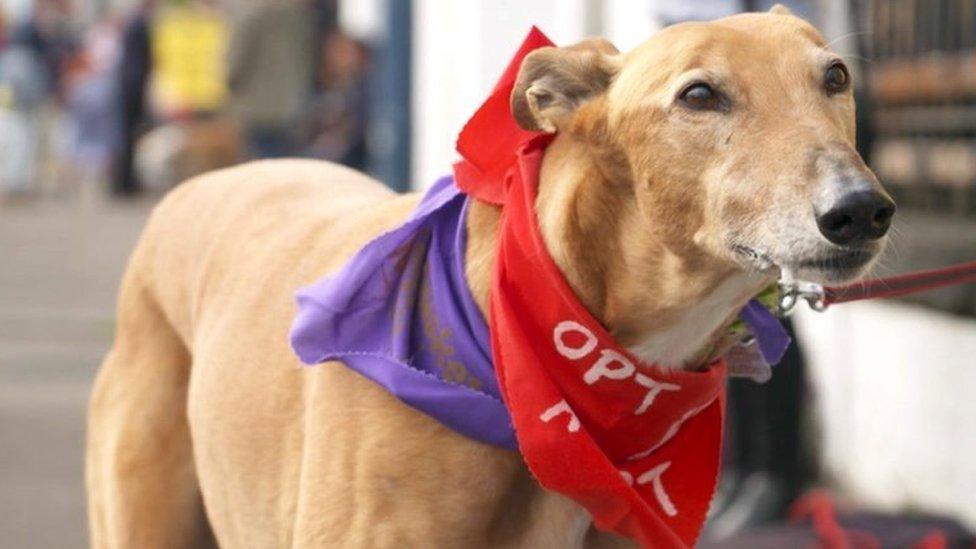The Towcester greyhound race with a £175k winning prize
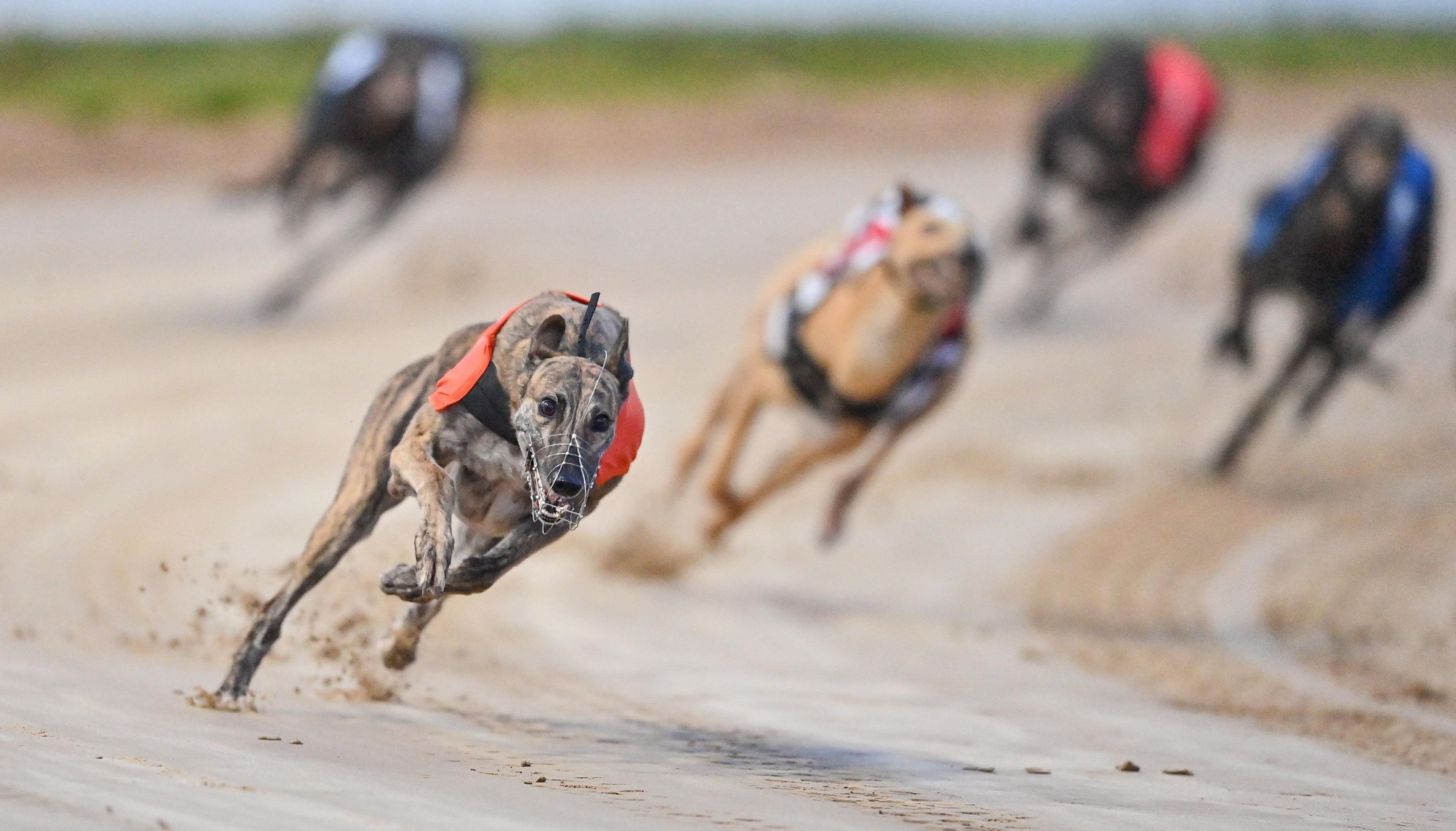
The English Greyhound Derby will be held at Towcester Racecourse on Saturday
- Published
On Saturday, Towcester Racecourse in Northamptonshire will host the annual English Greyhound Derby, with a £175,000 prize at stake for the winner.
While adored by some, the event has previously been a target for animal rights protestors, who claim the welfare of dogs is at stake as long as racing continues.
Where does the divisive sport stand in 2025?
Why is greyhound racing controversial?
Earlier this year, the Welsh government announced it would ban greyhound racing "as soon as practically possible".
It followed cross-party calls for a ban, a government consultation and a petition that attracted some 35,000 signatures.
No timeline has been announced for the ban, but it was welcomed by a coalition of animal welfare charities including the Dogs Trust, which said England, Scotland and Northern Ireland should follow suit.
"Greyhound racing is inherently dangerous for the dogs involved, and running at speed around oval tracks causes significant injury to many dogs," it said. "In some cases, the injuries are so severe that it is necessary to euthanise the dog."
However, the UK culture secretary, Lisa Nandy, said in February that there were "absolutely no plans" to extend the ban announced in Wales.

Lisa Nandy: "We have absolutely no plans whatsoever to ban greyhound racing"
According to data published by the Greyhound Board of Great Britain, 109 dogs died trackside at races in 2023. The number does not include deaths which may have occurred during training, or that have resulted later from injuries incurred during racing.
In 2023, welfare group Animal Rising scaled scaffolding in a bid to disrupt the greyhound derby at Towcester.
The racecourse said the action had cost it "thousands of pounds" in security, but racing had not been disrupted.
Why do activists want the sport stopped?
Claudia Penna Rojas, an activist for Animal Rising, told the BBC that she thought the statistics surrounding the deaths of dogs was "shocking".
She said: "If we had this number of deaths in other so-called sport, we would be absolute uproar about it."
"What we did [at Towcester in 2023] was protest what was happening, because we don't want to see dogs dying on this track. We don't want to see these dogs injured.
"We want to see a safe transition away from this industry. We want the dogs to be rehomed and happy... and to support the people who currently work in the industry to move away from it."

Protestors were present outside Towcester Racecourse during the English Greyhound Derby final in 2023
A promising future?
Although dog racing tracks in both Peterborough and Swindon have closed in recent times, there is still proof of investment in the sport.
Wolverhampton Racecourse is planning to open a new greyhound racing facility at its venue, to include a track and kennels. It is expected to open in the autumn.
Jonathan Hobbs, from Greyhound Racing UK - the organisers of Saturday's English Greyhound Derby - accepted the sport "has faced its challenges", but added "signs of renewal are visible".
He said: "The truth is that welfare standards and safety measures in greyhound racing, especially in the UK and Ireland, have seen a dramatic transformation [in recent years].
"The Greyhound Board of Great Britain (GBGB) has played a leading role in this progress, and the sport now sets the standard in areas like drug testing - paving the way even for other sports to follow.
"Greyhound racing continues to play a vital role in the betting industry and wider economy, supporting thousands of jobs and generating significant revenue and tax contributions.
"It also remains a cherished spectator experience. There's something uniquely enjoyable about a night at the dogs - watching these graceful, happy animals do what they love. Just look at their wagging tails at the finish line."
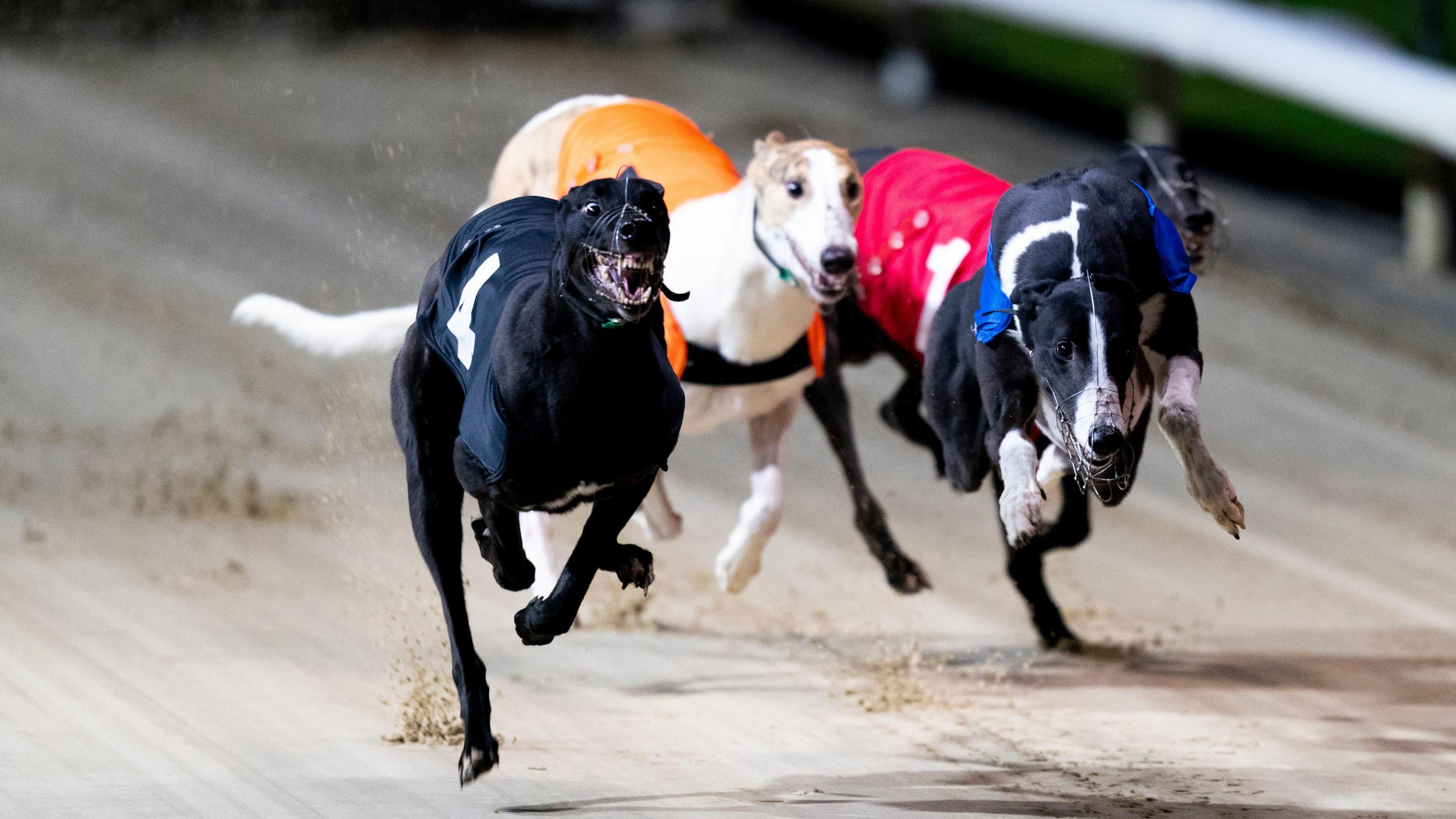
People within greyhound racing believe the welfare of animals involved in the sport is the best it has ever been
Mr Hobbs added that the sport had shown "dedication" to rehoming retired greyhounds, and said that "the vast majority" of dogs "now go on to enjoy happy, healthy lives as pets after their racing careers."
He said: "Rehoming rates are at record highs, and these gentle, affectionate dogs are increasingly recognised as ideal companions in family homes.
"The passion is still there [for the sport]. Towcester will be packed this Saturday for what promises to be the best English Greyhound Derby final in years... I can't wait."
Finding a common ground
Greyhound Homing UK works to support the welfare of racing and retired greyhounds.
According to the group, greyhounds typically finish their racing career between the ages of one and five years old. The average lifespan of the breed can be up to 15 years.
Gail May from Greyhound Homing UK said she understood the perspective of animal rights protestors, but said people involved in the dog racing industry had much in common with them.
"It's good to hear the views of those who oppose us," she said.
"We know that they do that from a position of loving dogs. I think it's perhaps overlooked how much as a sport we love our dogs.
"We have greyhounds at home too. We pride ourselves on making everything as safe as we possibly can. [But] nothing is without risk, unfortunately."
Get in touch
Do you have a story suggestion for Northamptonshire?
Follow Northamptonshire news on BBC Sounds, Facebook, external, Instagram, external and X, external.
Related to this story
- Published13 April
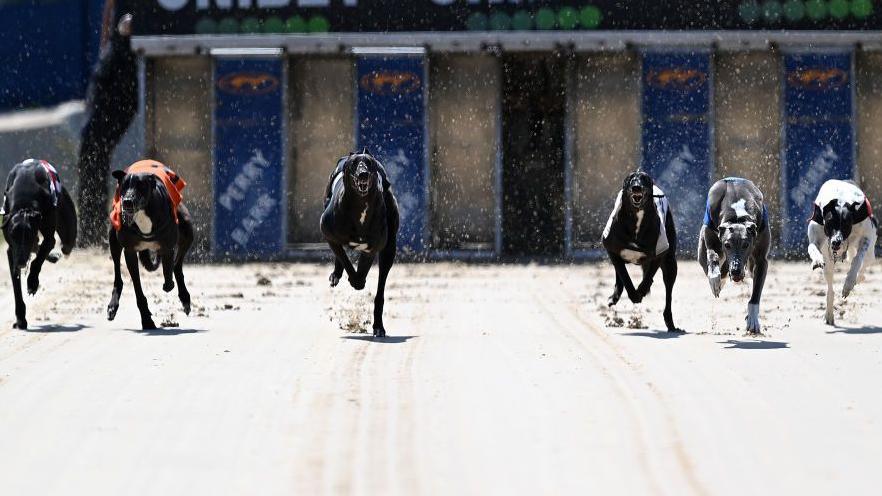
- Published23 February

- Published5 August 2024

- Published24 January 2023
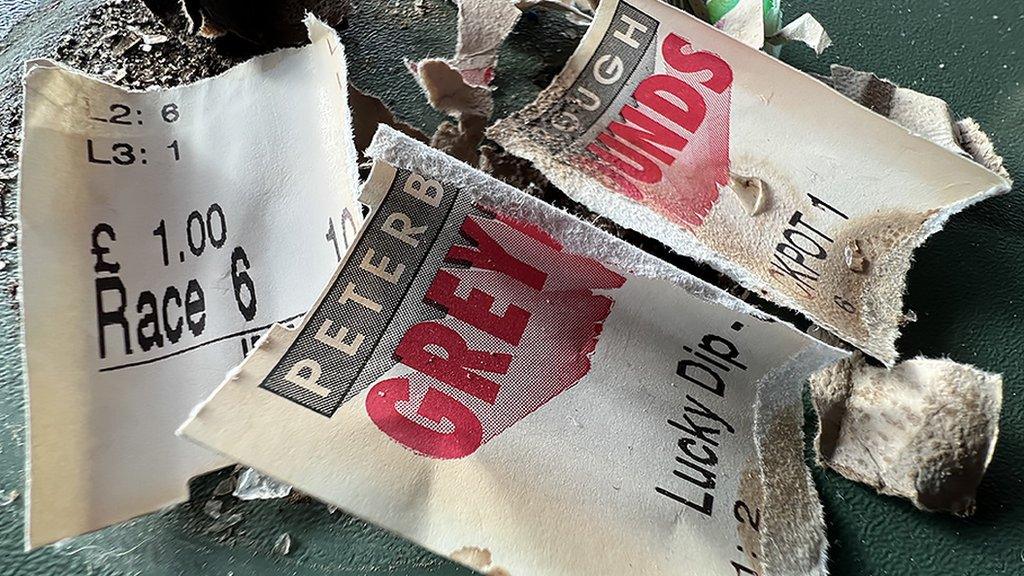
- Published18 June 2019
